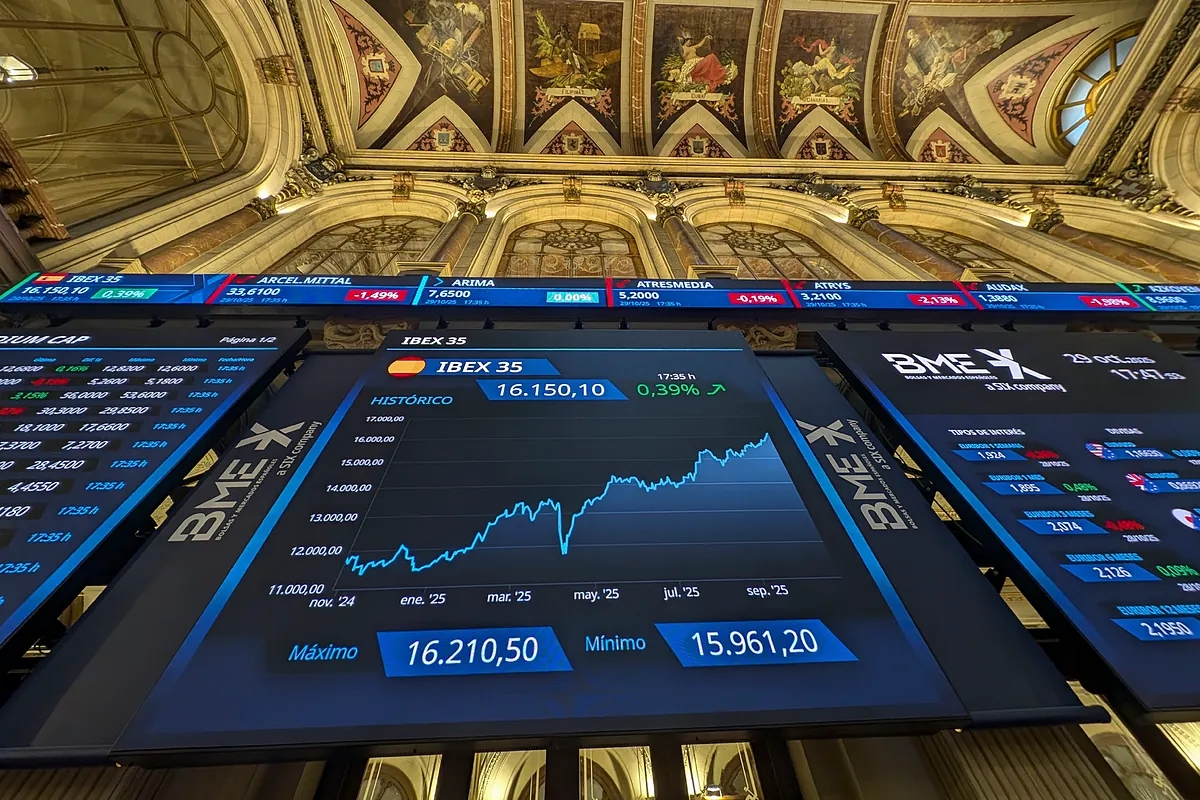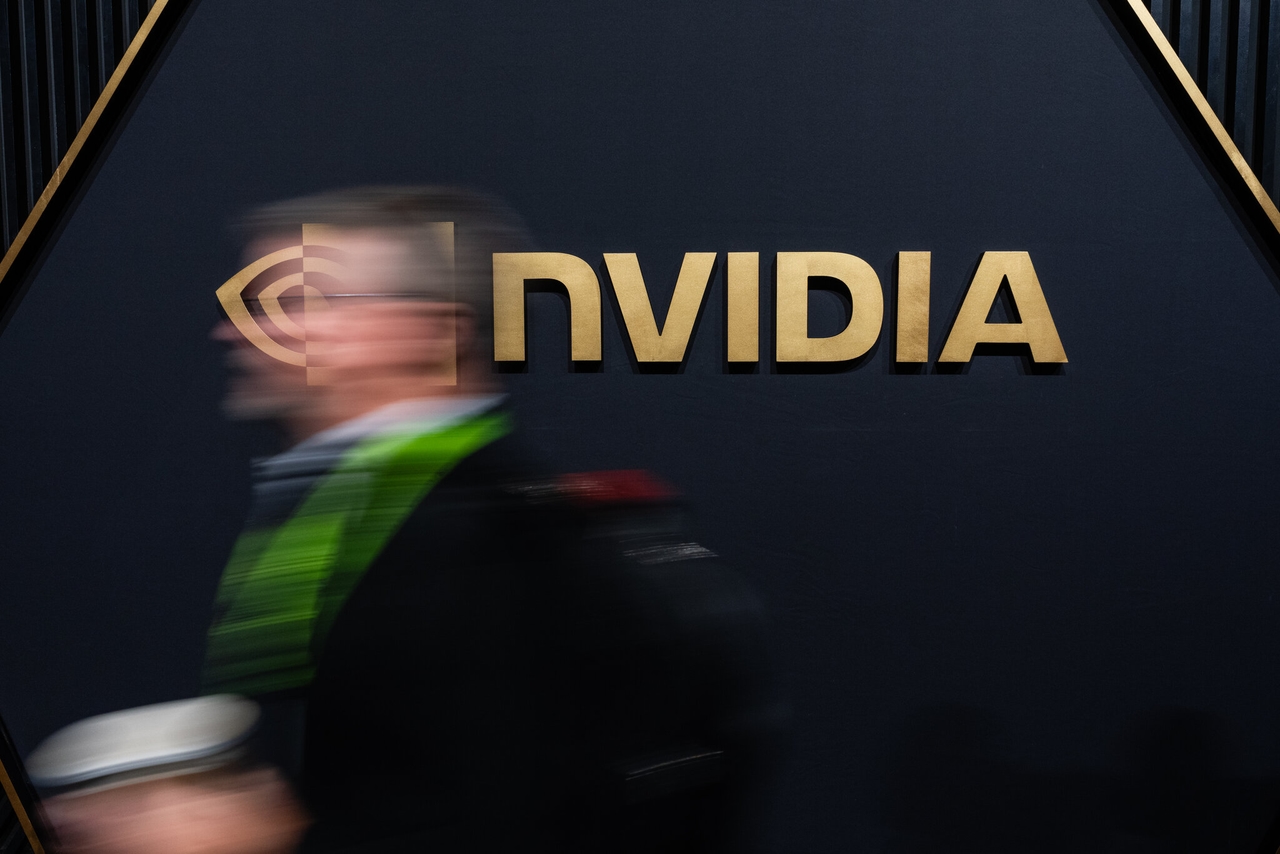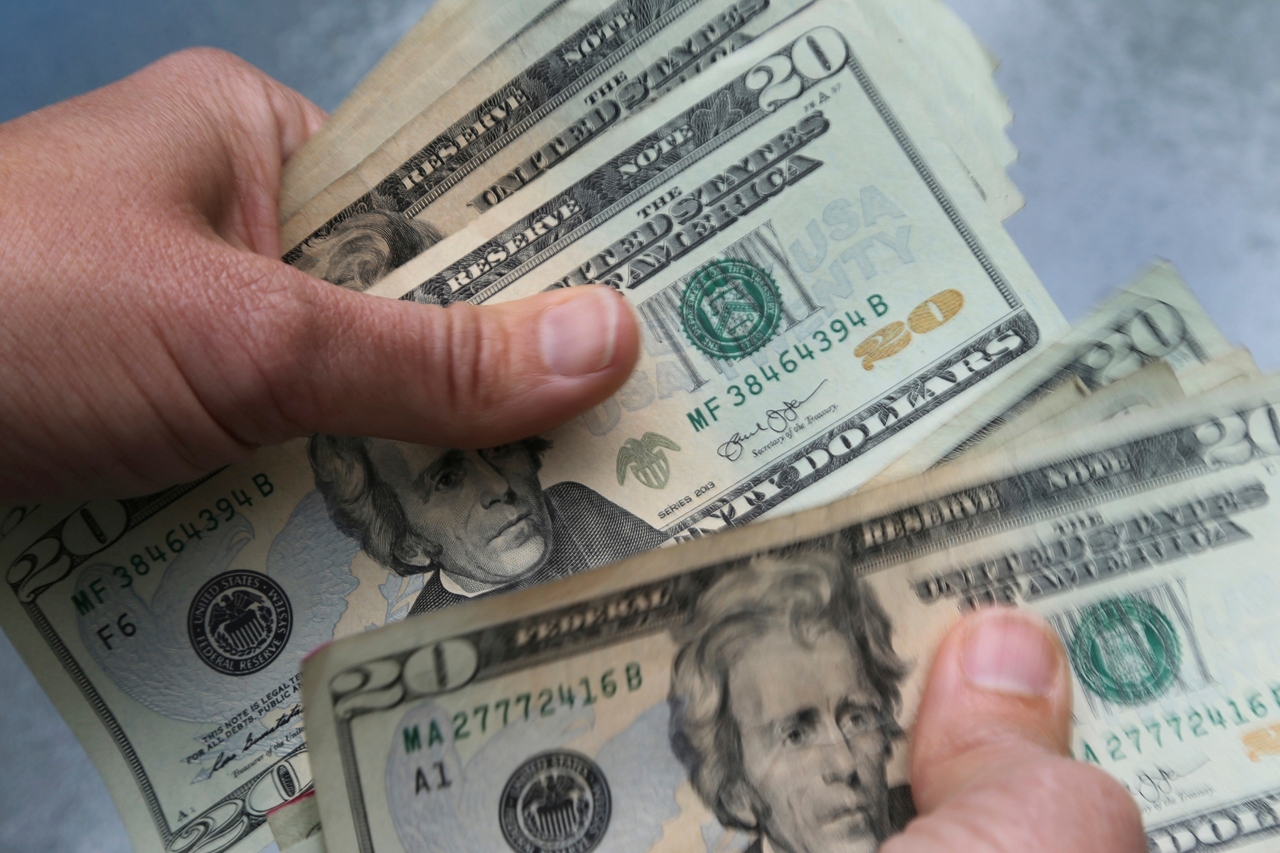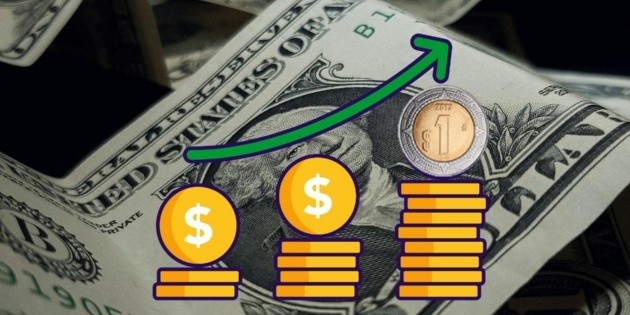The Ibex, overwhelmed with reference points, falls below 16,000 points

Since last night, markets have been plunged into their most frenetic 26 hours in recent memory . At least this intensity hasn't caught investors by surprise. Chronologically speaking, the Federal Reserve confirmed its 25-basis-point rate cut yesterday, which the market had already priced in. The surprise, even disappointment, came when Jerome Powell refused to even acknowledge the additional cut expected for December.
The "fog" caused by the macroeconomic data blackout due to the US government shutdown is fueling the reluctance of several Fed members to lower interest rates again in December. The monetary debate is reignited, and bond yields are rising. The yield demanded on the 10-year US Treasury note has climbed to nearly 4.10%, compared to 3.98% before the Fed meeting.
Just two hours after the Fed's decision was announced, investors reacted with very mixed feelings to the results from Alphabet, Microsoft, and Meta , three of Wall Street's "Magnificent Seven." The anticipated gains of up to 7% for Alphabet's stock contrasted sharply with the sharp declines in Microsoft futures (-2%) and especially Meta futures (-10%).
The most encouraging news came in the early hours of the morning. The meeting between Trump and Xi Jinping confirmed a trade agreement that reduces total tariffs on Chinese goods from 57% to 47%. Despite this progress, the new tariffs may still pose an obstacle to economic recovery.
The string of references is completed today with an avalanche of corporate results in Europe, including Spain, with macro data from the eurozone, with the meeting of the European Central Bank and, at the close of Wall Street, with the results of Apple and Amazon , two more of the 'Magnificent Seven'.
Ibex 35The Spanish stock market is not only receiving a barrage of international data. Today's session includes a new batch of local earnings reports, with prominent companies such as BBVA, Repsol, and Indra, among others. Doubts about the Ibex 35 have affected an index that had been rising for six consecutive days. The benchmark Spanish index is correcting its upward trend, and in its retreat, it registered intraday lows below the 16,000-point mark.
The accumulated gains raise the bar for market expectations, and the results are being met with a negative reaction in stocks like BBVA . The bank's shares are falling despite announcing a record profit of almost €8 billion, up 4.7% .
The correction extends to the other major Spanish bank, Santander. Yesterday's star performer on the Ibex, thanks to its results, has fallen by up to 3%. The bank is feeling the effects of short selling pressure on its shares, news that is offsetting the wave of positive ratings issued by analysts in response to its results.
The release of earnings reports was met with a lukewarm reception in the share prices of Repsol and Indra . Among the most significant gains on the Ibex today were Fluidra , boosted by its earnings report, and Ferrovial , which recovered some of the 3% losses suffered yesterday following its results.
European stock marketEuropean equities are digesting today's market news with a predominantly bearish bias. Uncertainty is casting doubt on historical highs and fueling the temptation to take profits. The pan-European Stoxx 600 index is registering intraday lows below the 575-point threshold.
Today's agenda includes one of the biggest earnings reports of the season in Europe. The multitude of results offers very mixed signals. Among the most bullish are those from the banks. Société Générale, ING, Standard Chartered, and Raiffeisen Bank all saw their share prices rise as a reward for their results. Investors are also inclined to buy shares in Lufthansa, Clariant, Electrolux, and Jeronimo Martins . The negative note among banks today comes from Crédit Agricole . The release of its earnings report also triggered declines in companies such as Stellantis, Puma, TotalEnergies, Sandoz, Schneider Electric , and especially Remy Cointreau , which plummeted by up to 10% on the Paris Stock Exchange.
Debt, euro, oil, gold and bitcoinEquity portfolio adjustments are being influenced by the rise in bond yields in response to the Fed. Its reluctance to announce another rate cut in December has pushed the yield on its 10-year bond above 4%. Today, it is approaching 4.10%, compared to 3.98% before the Fed's announcement. In Europe, the yield on the German Bund has risen to 2.65%, while the Spanish 10-year bond is trading around 3.15%.
The Fed's less dovish-than-expected tone is consolidating the dollar 's recent rebound. Despite the effects of the prolonged US government shutdown, the euro is struggling to hold above $1.16. The British pound , meanwhile, is trading just above $1.32.
Fears of less economic stimulus than expected, in the form of further interest rate cuts by the Fed, are taking their toll on a cyclical market like oil . Brent crude has once again turned bearish, falling to $64 a barrel.
Today is a more favorable day for gold . Uncertainty hangs over the markets, and investors are regaining interest in the ultimate safe-haven asset. After the correction it suffered last week, its price is climbing back to the brink of reclaiming the $4,000 per ounce mark.
The rebound in gold contrasts with the decline in Bitcoin . The largest cryptocurrency is feeling the effects of the possibility of reduced monetary stimulus, and its price has fallen back to the $110,000 level. The downward pressure from the Fed is being mitigated by Donald Trump , and more specifically, by the announced trade truce with China.
Expansion




